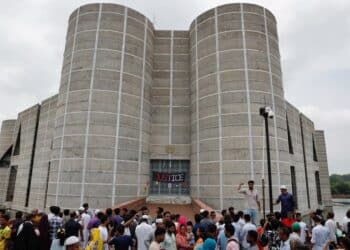Healthy kidneys do many important jobs, including keeping your whole body in balance by removing waste products and extra water from your body, helping make red blood cells and helping control blood pressure
Kidney failure
Having kidney failure means that 85-90 per cent of your kidney function is gone, and they don’t work well enough to keep you alive. It is when your kidneys have stopped working well enough for you to survive without dialysis or a kidney transplant. There is no cure for kidney failure, but it is possible to live a long life with treatment. Having kidney failure is not a death sentence, and people with kidney failure live active lives and continue to do the things they love.
Your kidneys have lost their ability to filter waste from your blood. Kidney failure is also called end-stage kidney disease (ESKD) or end-stage renal disease (ESRD).
Causes kidney failure
High blood pressure and diabetes are the two most common causes of kidney failure. They can also become damaged from physical injury, diseases, or other disorders.
What happens when kidneys fail?
Kidney failure does not happen overnight. It is the result of a gradual loss of kidney function. Some people do not even know they have kidney disease until their kidneys fail. Why not? Because people with early kidney disease may not have any symptoms. Symptoms usually show up later in the progression of the disease and may include:
Trouble sleeping
Poor appetite
Weakness
Tiredness
Itching
Weight loss
Muscle cramps (especially in the legs)
Swelling of your feet or ankles
Anaemia (a low blood count)
Trouble sleeping
Healthy kidneys remove wastes and extra fluid from your blood. But when your kidneys fail, wastes and excess fluid can build up in your blood and make you feel sick. Once you begin treatment for kidney failure, your symptoms will improve, and you will start to feel much better.
Are treatments available for kidney failure?
Dialysis and kidney transplant are the two treatments for kidney failure. The dialysis treatments or transplanted kidneys will take over some of the work of your damaged kidneys and remove wastes and extra fluid from your body. This will make many of your symptoms better.
Dialysis: There are two types of dialysis- hemodialysis and peritoneal dialysis. Both remove waste produces and extra fluid from your blood. Hemodialysis uses an artificial kidney machine, while peritoneal uses the lining in the belly.
Kidney transplant: A kidney transplant is an operation that places a healthy kidney in your body.
What is the best treatment for me?
There are many things to consider when choosing a treatment for kidney failure, including:
Lifestyle
Age
Health problems
Having someone to assist you
Your decision should be based on more than your medical history, your doctor’s opinion, and what you and your family want. Learning about your treatment choices will help you decide which is best for you.
Any medicines or a special diet?
Most likely. Your healthcare team will work with you to develop a treatment plan that’s right for you. Your treatment plan may include:
Taking medicines
Restricting salt
Limiting certain foods
Getting exercise
You will also need treatment for any other health problems you may have, including high blood pressure or diabetes.










